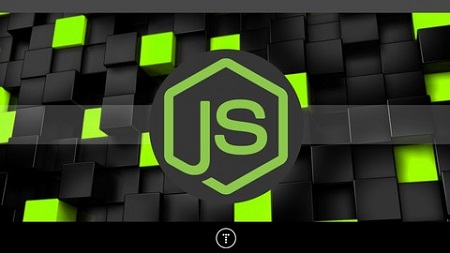English | MP4 | AVC 1280×720 | AAC 48KHz 2ch | 9 Hours | 1.31 GB
Learn by example building & deploying real-world Node.js applications from absolute scratch
In this 8.5 hour course you will learn by example building 2 real world server-side applications from scratch all the way up to deployment with a real domain. No more confusion about how to build a Node app for production and not just on your localhost.
You will learn how to structure your Node/Express applications, create data models, relate data, display views, authenticate users, create helpers and much more…
PROJECT 1 – VIDJOT
An application where content creators can register and jot down and manage ideas for future videos
The first project is quite simple as it is meant to be an introduction where I explain everything about Express routing, middleware, templates, Mongoose, etc. We implement Passport and a local strategy where we store emails as usernames and encrypted passwords in our database. We will prepare and deploy this app to Heroku and add a domain name
PROJECT 2 – STORYBOOKS
A much more sophisticated project. A social network for creating public and private stories.
This app uses a Google OAuth 2.0 strategy for authentication. Users can login and create stories which can be set to public or private. They can also choose if comments are allowed to be posted. We will create a dashboard for users to manage their stories. We will create helpers for authentication and access control as well as handlebars template helpers. We will prepare and deploy this app to Heroku and add a domain name
Table of Contents
Course Introduction
1 Welcome To The Course
2 Project Files & Questions
Setting Up
3 Dev Environment Setup
4 What Exactly Is Node.js?
5 Installing & Exploring Node.js
6 Install MongoDB Locally
7 Sign Up For mLab
8 Create a Heroku Account
VidJot Project Start & Express Fundamentals
9 VidJot Project Introduction
10 Install & Initialize Express
11 Basic Routing & Nodemon
12 Express Middleware
13 Working With Templates
14 Bootstrap & Partials
Mongoose & Local MongoDB
15 Install Mongoose & Connect
16 Create The Idea Model
17 Add Idea Form
18 Server Side Form Validation
19 Saving Idea To MongoDB
20 Fetching Ideas From MongoDB
21 Edit Idea Form
22 Update Idea Data
23 Remove Idea Data
24 Flash Messaging
Local Authentication With Passport
25 A Look At Passport
26 The Express Router
27 Login & Register Pages
28 Register Form Validation
29 User Registration
30 Hooking Up A Local Strategy
31 Finishing The Login Functionality
32 Logout Function
33 Protecting Routes
34 Access Control
VidJot Prep & Deployment
35 Preparing Our App For Deployment
36 Deploying To Heroku
37 Adding A Domain Name
StoryBooks Project Start & Google OAuth
38 StoryBooks App Introduction
39 Initial Setup & Heroku Push
40 Creating Our Google OAuth Credentials
41 Creating Our Google Strategy
42 Auth Callback & Remote App
43 Creating The User Model
44 Saving The Authenticated User
45 Adding Session & Authentication
Creating Our UI
46 Index Routes & Handlebars
47 Header & Navbar
48 Side Navigation
49 Dashboard & Stories Routes
50 Add Button & Footer
51 Restricting Routes
52 Add Story Form
Stories & The Database
53 Create The Story Model
54 Save Story To MongoDB
55 Fetch & Display Public Stories
56 Handlebars Helpers
57 Show Template & Format Dates
58 Creating The Dashboard
59 Edit Form & Select Helper
60 Updating Stories
61 Deleting Stories
Comments, Access Control & Cleanup
62 Add Comment Functionality
63 Listing Comments
64 Edit Access Control
65 Get Stories From Specific Users
66 Block Private Story Details
StoryBooks Prep & Deployment
67 Prep & Production Key Variables
68 Deploy & Test
69 Domain & Update Google OAuth Creds
Resolve the captcha to access the links!
